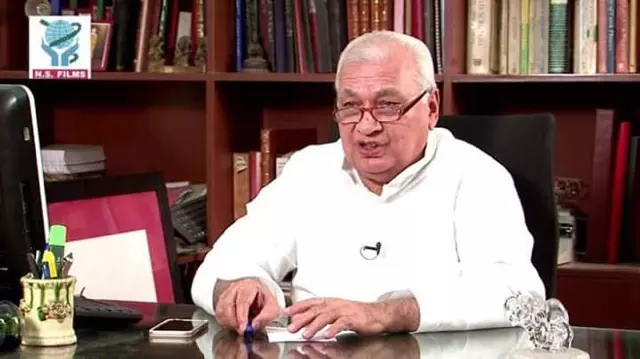
At war with Left govt, Kerala Governor ends Assembly speech in 77 seconds
The one paragraph Khan read included a portion emphasising the legacy of the Constitution, the values of democracy, secularism, federalism and social justice

The already strained ties between Kerala Governor Arif Mohammed Khan and the LDF government hit a new low on Friday when he read out only the introduction and the final paragraph of his customary policy address in the Assembly.
This resulted in an embarrassing, shortest policy address in the state’s history.
77-second speech
Arriving at the Assembly at 9 am, Khan swiftly concluded the address in 77 seconds and left the House.
Initiating the address with a greeting to everyone present, he proceeded to state: “I will now read the last paragraph.”
Interestingly, that paragraph included a portion emphasizing the priceless legacy of the constitution, and the timeless values of democracy, secularism, federalism and social justice.
Secular values
“Let us remember that our greatest legacy lies not in buildings or monuments, but in the respect and regard we show to the priceless legacy of the Constitution of India and the timeless values of democracy, secularism, federalism and social justice. The essence of cooperative federalism is what has kept our country united and strong all these years. It is our bounden duty to ensure that this essence is not diluted. Together as part of this varied and beautiful nation we will weave the tapestry of inclusive growth and responsible resilience, overcoming all the challenges that are thrown our way,” read the governor.
Once again, the governor’s unusual action highlighted that the discord between Khan and the Left government, particularly regarding the operations of state universities and his refusal to sign certain Assembly-approved bills, remains unresolved.
Governor-Left rift
Nevertheless, the policy statement the governor declined to read in its entirety has revealed the challenges the state is currently facing, along with the claims of having implemented a string of visionary projects and policies.
The policy statement of the government focused on the neglect by the Union government on fiscal matters concerning the state.
“The consistent decline in the awards of the successive Finance Commissions serves as a compelling case in point. Kerala witnessed a decline in its share of taxes devolved by the Union government from 3.88 per cent during the 10th Finance Commission period (1995-2000) to a mere 1.92 per cent during the 15th Finance Commission period (2021-26).
Ire against Centre
In 2023-24, the discontinuation of GST compensation, a reduction in revenue deficit grant, and restrictions imposed on ‘off-budget’ borrowings of the state by the Union exacerbated the fiscal condition of Kerala.
In this context, (the) government has focused on achieving fiscal consolidation on one hand and enhancing domestic revenue mobilization on the other, read the statement.
The statement claimed that in 2022-23, the government has raised own tax revenues amounting to Rs. 71,968 crores, marking an increase of nearly Rs. 13,600 Crores, or 23.4 per cent from the previous year.
RBI pat
“According to the Reserve Bank of India, Kerala is among the top performers in revenue mobilization efforts. It is noteworthy that the percentage of own tax revenue that comes from alcohol in Kerala (3.7 per cent) is amongst the lowest of all states and compares very favourably with states where the percentage is as high as 22 per cent.”
Unveiling these data, the government placed the “considered opinion before the Union government that Kerala should be ensured its well-deserved share in the distribution of taxes”.
It also expressed concern in the holding back of eligible grants and share of assistance in Centrally-sponsored schemes.
Centre’s bias
“The government is put to added liquidity stress because of the retrospective cut in borrowing limits, which is not in accordance with the accepted recommendations of the 15th Finance Commission. This stand of the Union government needs an early reconsideration,” urged the statement.
It claimed that the government’s stupendous achievements have come about despite many formidable challenges, with liquidity stress stemming from the vertical imbalance between the Union and the states in fiscal matters being the most prominent one.
Fiscal mess
“The fact that the Union possesses a significantly greater capacity to mobilize resources compared to the states, while the states are mandated to undertake developmental expenditures that far surpass their revenue-generating capabilities points to a great asymmetry within India’s federal system. Over time, this has further intensified, constraining the fiscal position of the states,” read the statement.
The state government’s decision to re-introduce the portions excluded by the NCERT in the school text books also find prominence in the policy address.
“The main portions excluded by NCERT include Mughal history and partition of India, the martyrdom of Mahatma Gandhi, five-year plan, Emergency, popular struggles in India, social conditions in India and caste system. Therefore, Kerala launched additional textbooks in humanities to ensure a real historical and social awareness to the children. Six additional textbooks were released in four subjects,” stated the government.
However, the Congress claimed that the government has made compromises on numerous issues with the BJP-led Centre and refrained from offering criticism.
“This marks the climax of the political drama between the government and the Governor,” alleged VD Satheesan, the leader of the opposition in the House.
